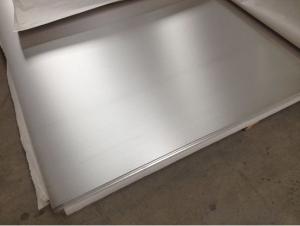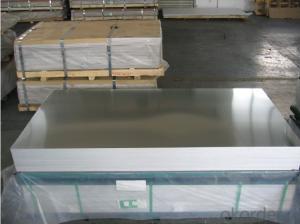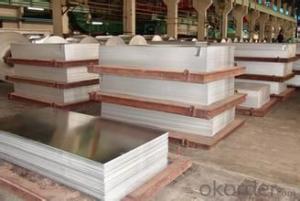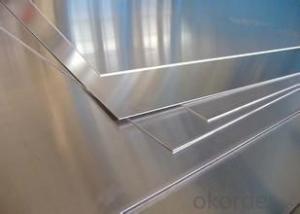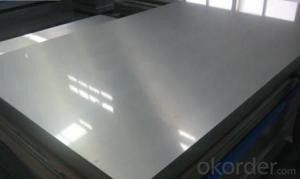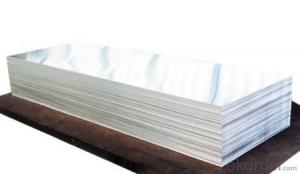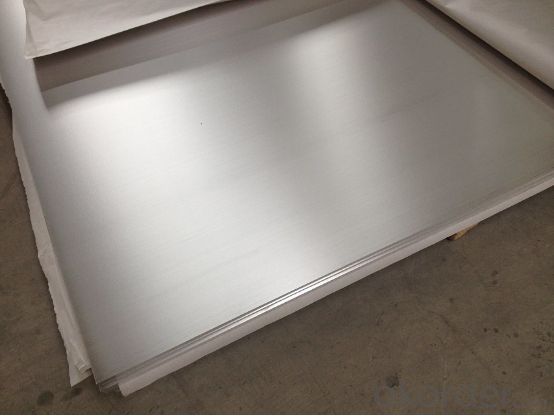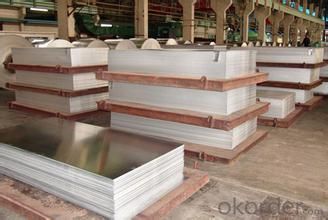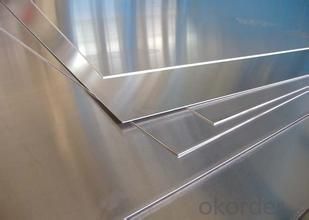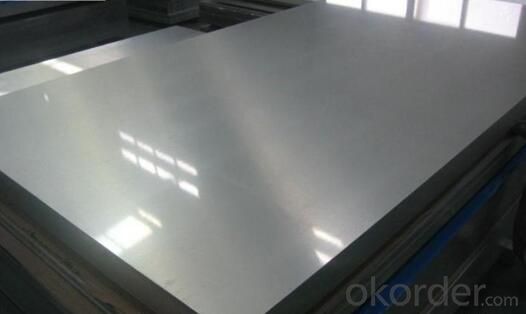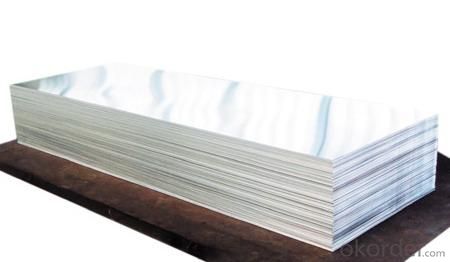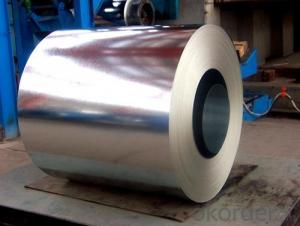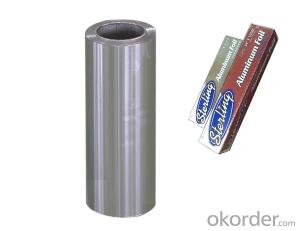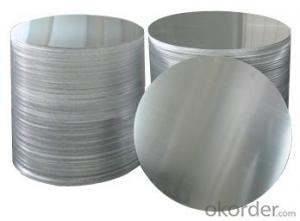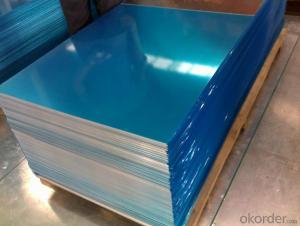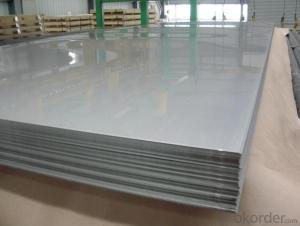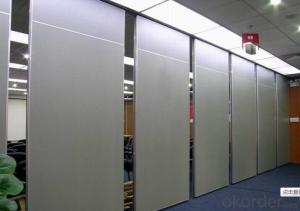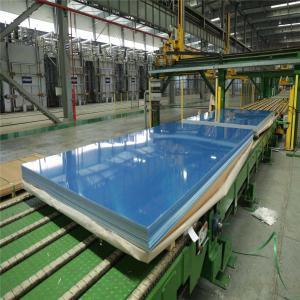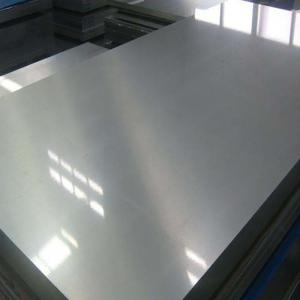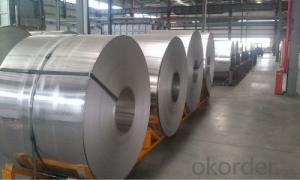1050,1100,1060 Aluminum Mirror Sheet Plate - Aluminum Sheets Massachusetts
- Loading Port:
- Shanghai
- Payment Terms:
- TT OR LC
- Min Order Qty:
- 5 m.t.
- Supply Capability:
- 10000 m.t./month
OKorder Service Pledge
OKorder Financial Service
You Might Also Like
Specification
Discription:
Aluminum Sheets
Alloy No.: 1050, 1060, 1070, 1100, 3003, 3004, 3005, 3104, 3105, 5005, 5052, 5083, 5754, 8011, 8006, 8079, etc..
Temper: H14, H16, H18, H22, H24, H26, H32, O/F
Thickness: 0.2mm-20mm
Width: 10mm - 2100mm
1.Dark green surface, color changed into light green after exposure.Image checked easily.
2.Surface Quality :be free from Oil Stain, Dent, Inclusion, Scratches, Stain, Oxide Dicoloration, Breaks, Corrosion, Roll Marks, Dirt Streaks and other defect which will interfere with use
3.Faithful reproduction capacity, result at clear images.
4.Highly durable, long impression available.
5.Excellent sensitive character.
6.Resolution : 2%-98%
7.Material:1050/1060/1070/1100/2A16/2A06/2A12/2024/3003/3A21/4A01/5052/5005/5083/5A05/6061-T6/6063-T5/6082/7021/7075-T6/8011,etc
8.Certificate: ISO9001:2000, SGS and ROHS(if client request, paid by client), MTC(plant provided), Certificate of Origin(FORM A, FORM E, CO)
9.Packing:First, plastic cloth; Second, Pearl Wool ; Third, wooden cases with dry agent ,without fumigation,wooden pallets
10.Application:Aircraft, automobile, train,Building wall, ceilings, roofing, furniture cabinet, lighting plate,etc
Service
1. We have the good and professional team, have a good after-sales service.
2. Accept any drawings or your samples to develop new product.
3. Offer relateive technical support,quick response,all your inquire will replied within 24 hours.
4. OEM, buyer design, buyer label services provided.
5. Have the certification of ISO 9001, SGS.
6. Special discount and protection of sales area provided to our distributor.
FAQ
Q1:Do you provide sample? How many days will samples be finished?
Free samples will be provided if needed, but customers should undertake shipping cost or freight charges, samples will be finished in 5-7days
Q2: Can we visit your factory?
Welcome to our factory at any time.
Q3: Complaint solving process
Finding your salesman—Salesman provide you the solution (If it’s our responsibility, we will resend substitutes or return money or provide discount for your next order, etc.; If it’s shipping company’s responsibility, we will also help you until the problem is resolved.) —If salesman can’t solve your problem, please call our manager .
Q4: Delivery time
3~30working days after confirming the payment. If the order is urgent, we will push our workers to finish in advance.
Q5: What's your MOQ?
Normally 8MT are requested as the minium order quantity ,we shall give
additional instructions in special circumstances.
Q6: What are the terms of payment and currencies do you accept?
T/T or L/C is accepted, currently we appreciated your payment through
USD,EUR, RMB
Q7: Do you accept customized orders?
Yes, we do. Your customized orders are always welcomed. Please kindly offer us your samples or drawings, so that we can customize the products according to your preferences. About any further detail, please feel free to contact us.
Q8: What information should I let you know if I want to get a quotation?
Your detailed requirements regarding the products's dimensions, including shape, thickness, top out (length*width*height), and your order quantity are highly appreciated if you want further information about our quotation
Q9: How about the mass production?
The lead time of mass production depend on quantity, usually 25-30days (20FT) .
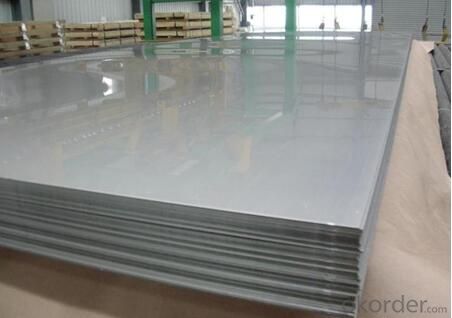
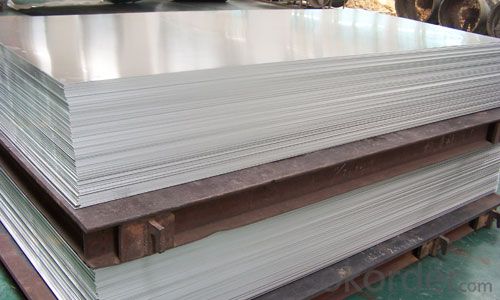
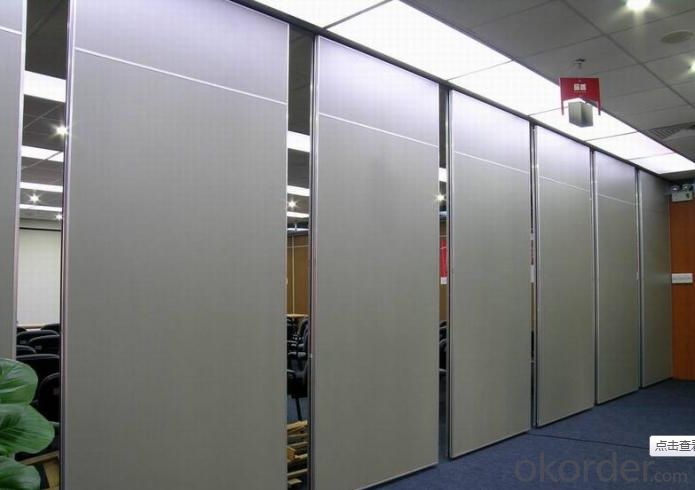
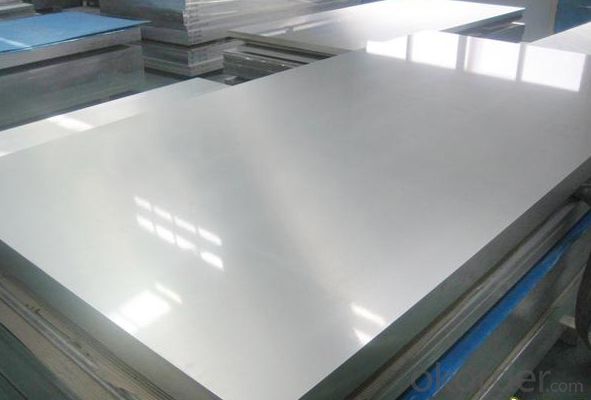
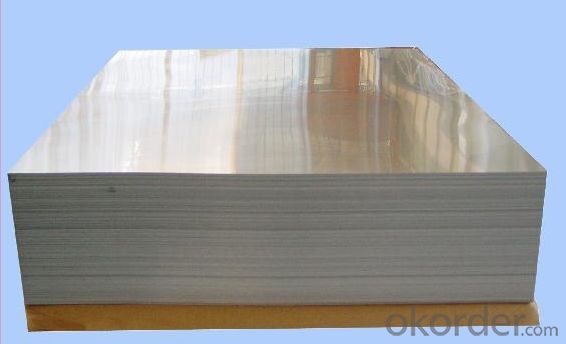
- Q: Can aluminum sheets be used for insulation cladding?
- Indeed, insulation cladding can utilize aluminum sheets. Renowned for their lightweight nature and durability, aluminum sheets exhibit exceptional thermal conductivity properties. These sheets proficiently reflect heat and obstruct the transmission of thermal energy, rendering them a prime selection for insulation cladding purposes. Additionally, aluminum sheets possess resistance against corrosion, moisture, and fire, thus augmenting their appropriateness for insulation applications. In essence, employing aluminum sheets for insulation cladding can contribute to the advancement of energy efficiency, curtail heat dissipation, and elevate the overall efficiency of a building or structure.
- Q: This question asks for an overview of the various types of coatings applied to aluminum profiles used in exterior cladding systems.
- <p>Aluminum profiles for exterior cladding are often coated to enhance their durability, weather resistance, and aesthetic appeal. Common types of coatings include: 1. Anodizing, which creates a protective oxide layer on the aluminum surface. 2. Powder coating, a popular method that provides a durable and colorful finish. 3. Fluorocarbon coating, known for its excellent weathering and UV resistance. 4. PVDF (Polyvinylidene Fluoride) coating, highly resistant to chemicals and suitable for marine environments. 5. Electrophoretic coating, which offers a smooth, even finish. 6. Hot-dip galvanizing, a process that coats aluminum with a protective layer of zinc. Each coating type has specific advantages and is chosen based on the performance requirements and environmental conditions of the project.</p>
- Q: Are 101 aluminum sheets suitable for decorative purposes?
- Yes, 101 aluminum sheets are suitable for decorative purposes. These sheets are made of high-quality aluminum alloy, which provides a sleek and polished appearance. They have excellent corrosion resistance and are easy to clean, making them ideal for use in decorative applications. Additionally, 101 aluminum sheets can be easily cut and shaped, allowing for creative designs and customization. Whether it's for interior or exterior decoration, these sheets can be used for various purposes such as wall cladding, signage, furniture accents, and more. With their durability and aesthetic appeal, 101 aluminum sheets are a great choice for adding a touch of elegance to any space.
- Q: Can aluminum sheets be custom cut to specific sizes?
- Yes, aluminum sheets can be custom cut to specific sizes according to the requirements of the project or application.
- Q: How does the grain structure of aluminum sheet affect its properties?
- The grain structure of aluminum sheet plays a significant role in determining its properties. The grain structure refers to the arrangement of individual aluminum crystals, also known as grains, within the sheet. The size, shape, and orientation of these grains can influence various mechanical and physical properties of the aluminum sheet. For instance, the grain structure affects the sheet's strength, ductility, hardness, and even its corrosion resistance. In terms of strength, a fine-grained aluminum sheet tends to have higher strength than a coarse-grained one. This is because the presence of smaller grains allows for more grain boundaries, which act as obstacles to dislocation movement and enhance the material's resistance to deformation. On the other hand, a coarse-grained structure has fewer grain boundaries, leading to reduced strength. Furthermore, the grain structure affects the sheet's ductility, which refers to its ability to deform without fracturing. Aluminum sheets with finer grains typically exhibit better ductility as the numerous grain boundaries hinder dislocation motion and prevent crack propagation. In contrast, coarser grains tend to promote crack propagation, resulting in reduced ductility. The hardness of aluminum sheet is also influenced by its grain structure. Generally, a fine-grained structure contributes to higher hardness due to increased dislocation density and grain boundary strengthening. Conversely, a coarse-grained structure leads to reduced hardness as there are fewer obstacles to dislocation motion. Moreover, the grain structure affects the sheet's corrosion resistance. Fine-grained aluminum sheets tend to have improved corrosion resistance compared to coarse-grained ones. This is because the presence of more grain boundaries in fine-grained structures impedes the movement of corrosive agents, thus reducing the likelihood of corrosion. In summary, the grain structure of aluminum sheet significantly impacts its properties. Fine-grained structures generally enhance strength, ductility, hardness, and corrosion resistance, while coarse-grained structures tend to have the opposite effects. Therefore, controlling and optimizing the grain structure during the manufacturing process is crucial in achieving the desired properties of aluminum sheet for various applications.
- Q: What are the different types of alloys used for anodized aluminum sheets?
- Anodized aluminum sheets can be made using various types of alloys, each with its own unique characteristics and uses. Some commonly used alloys include: 1. Pure aluminum, found in 1000 series alloys, is highly resistant to corrosion. It is frequently employed in anodized aluminum sheets across different industries such as architecture, automotive, and aerospace. 2. The 5000 series alloys, which contain magnesium as the primary alloying element, offer increased strength and excellent weldability. These alloys are often chosen for anodized aluminum sheets in applications that require high strength and resistance to atmospheric corrosion. 3. The 6000 series alloys are renowned for their exceptional combination of strength, extrudability, and corrosion resistance. Among this series, the 6061 alloy is widely used for anodized aluminum sheets in structural components, marine applications, and consumer electronics. 4. The 7000 series alloys are famous for their extraordinary strength and are typically used in applications that demand high-performance materials. The most commonly utilized alloy in this series for anodized aluminum sheets is 7075, which finds extensive use in the aerospace and defense industries. 5. The 2000 series alloys are mainly employed when high strength and excellent fatigue resistance are needed. These alloys are commonly used in the aerospace industry for anodized aluminum sheets. It is crucial to consider the specific requirements of the application, including desired strength, corrosion resistance, and other mechanical properties, when selecting the appropriate alloy for anodized aluminum sheets.
- Q: Can aluminum sheets be used for automotive heat shields?
- Yes, aluminum sheets can be used for automotive heat shields. Aluminum is a popular choice for heat shields in the automotive industry due to its excellent thermal conductivity and heat resistance properties. It has a high melting point and can effectively dissipate heat, making it suitable for protecting various components from excessive heat exposure. Additionally, aluminum sheets are lightweight and easy to shape, allowing for custom designs to fit specific automotive applications. Overall, aluminum sheets are a reliable and cost-effective option for automotive heat shields.
- Q: What are the fire-resistant properties of aluminum sheets?
- Aluminum sheets offer impressive fire-resistant qualities, making them an ideal choice for different applications that prioritize fire safety. The primary explanation for their fire resistance lies in the natural formation of a unique oxide layer on the aluminum's surface when exposed to oxygen. This layer acts as a protective barrier, preventing further oxidation and reducing the likelihood of combustion. Not only is the oxide layer on aluminum sheets highly stable, but it also boasts a high melting point. Consequently, it can endure high temperatures without melting or catching fire, rendering it flame-resistant. Additionally, the oxide layer acts as an effective thermal insulator, slowing down heat transfer and impeding the spread of fire. Another benefit of aluminum sheets is their low flammability. Aluminum is a non-combustible material, meaning it does not burn or support combustion. This characteristic proves especially advantageous in situations where fire containment and prevention are critical. Furthermore, aluminum sheets possess exceptional heat dissipation capabilities. They swiftly disperse heat away from the source, minimizing the risk of overheating and potential fire hazards. This makes them suitable for various heat-intensive applications, including electrical enclosures, automotive parts, and industrial machinery. In conclusion, aluminum sheets demonstrate remarkable fire-resistant qualities due to the protective oxide layer, non-combustible nature, and efficient heat dissipation. These attributes make them highly sought after for applications that prioritize fire safety, offering reassurance and safeguarding against potential fire incidents.
- Q: Are aluminum sheets resistant to saltwater corrosion?
- Generally, aluminum sheets exhibit resistance to corrosion from saltwater. When exposed to air or water, including saltwater, aluminum naturally develops a protective oxide layer. This layer serves as a barrier, preventing additional corrosion and safeguarding the underlying metal. Furthermore, aluminum is both lightweight and durable, making it a favored choice for numerous marine applications such as boats, shipbuilding, and offshore structures. Nevertheless, it is important to acknowledge that the level of resistance to saltwater corrosion may differ based on the specific alloy and surface treatment of the aluminum sheets. Consequently, selecting the appropriate alloy and applying protective coatings can further enhance the corrosion resistance of aluminum sheets in saltwater environments.
- Q: Can aluminum sheets be used for elevator interiors?
- Yes, aluminum sheets can be used for elevator interiors. Aluminum is a commonly used material in elevator construction due to its durability, lightweight nature, and aesthetic appeal. It provides a sleek and modern look to elevator interiors while also offering high resistance to corrosion and wear.
Send your message to us
1050,1100,1060 Aluminum Mirror Sheet Plate - Aluminum Sheets Massachusetts
- Loading Port:
- Shanghai
- Payment Terms:
- TT OR LC
- Min Order Qty:
- 5 m.t.
- Supply Capability:
- 10000 m.t./month
OKorder Service Pledge
OKorder Financial Service
Similar products
Hot products
Hot Searches
Related keywords
